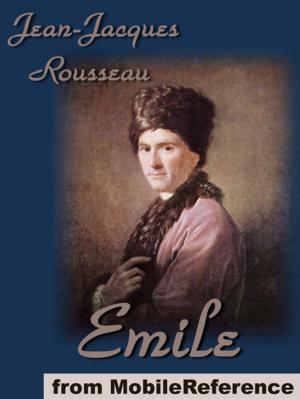The Eclogues (Mobi Classics)
Nonfiction, History, Ancient History, Rome, Fiction & Literature, Poetry, Classics| Author: | Virgil | ISBN: | 9781607780168 |
| Publisher: | MobileReference | Publication: | January 1, 2010 |
| Imprint: | MobileReference | Language: | English |
| Author: | Virgil |
| ISBN: | 9781607780168 |
| Publisher: | MobileReference |
| Publication: | January 1, 2010 |
| Imprint: | MobileReference |
| Language: | English |
The Eclogues (also called the Bucolics) are the first of the three major works of the Latin poet Virgil.Imitating the Greek Bucolica ("on care of cattle", so named from the poetry's rustic subjects) by Theocritus, Virgil created a Roman version partly by offering a dramatic and mythic interpretation of revolutionary change at Rome in the turbulent period between roughly 44 and 38 BC. Virgil introduced political clamor largely absent from Theocritus' poems, called idylls ("little scenes" or "vignettes"), even though erotic turbulence disturbs the "idyllic" landscapes of Theocritus.Virgil's book contains ten pieces, each called not an idyll but an eclogue ("draft" or "selection" or "reckoning"), populated by and large with herdsmen imagined conversing and making songs in largely rural settings, whether suffering or embracing revolutionary change or happy or unhappy love. Performed with great success on the Roman stage, they feature a mix of visionary politics and eroticism that made Virgil a celebrity, legendary in his own lifetime. Excerpted from Wikipedia, the free encyclopedia.
The Eclogues (also called the Bucolics) are the first of the three major works of the Latin poet Virgil.Imitating the Greek Bucolica ("on care of cattle", so named from the poetry's rustic subjects) by Theocritus, Virgil created a Roman version partly by offering a dramatic and mythic interpretation of revolutionary change at Rome in the turbulent period between roughly 44 and 38 BC. Virgil introduced political clamor largely absent from Theocritus' poems, called idylls ("little scenes" or "vignettes"), even though erotic turbulence disturbs the "idyllic" landscapes of Theocritus.Virgil's book contains ten pieces, each called not an idyll but an eclogue ("draft" or "selection" or "reckoning"), populated by and large with herdsmen imagined conversing and making songs in largely rural settings, whether suffering or embracing revolutionary change or happy or unhappy love. Performed with great success on the Roman stage, they feature a mix of visionary politics and eroticism that made Virgil a celebrity, legendary in his own lifetime. Excerpted from Wikipedia, the free encyclopedia.















